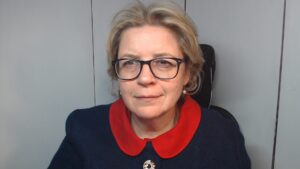Medical engagement has long been regarded as a critical component for effective performance in healthcare organisations. The World Health Organization (WHO) highlights that low- and middle-income countries such as India must increase coverage of priority health services to accomplish the health-related Sustainable Development Goals. Although the literature suggests various barriers and drivers faced by doctors on their journey towards leadership positions in hospitals, there appears to be a gap in our understanding about their own perceptions of leadership since limited evidence-based information is available on this topic particularly from the non-western contexts.
While the majority of the hospital CEOs in India are physicians, the opposite is the case in the UK and in both countries MD MBA graduates are rare. In the National Health Service (NHS), there are increasing efforts to increase the involvement of doctors in the senior management teams of public hospitals and healthcare organisations. It is believed that a greater critical mass of doctors will significantly enhance the efficiency and effectiveness of health systems, although the evidence base remains fragmented. Therefore, more evidence is needed to reinforce greater involvement of doctors in strategic decision making will be beneficial in terms of improved clinical outcomes.
As far as the medical leadership scenario in India is concerned, the National Health Policy of India (2017) mentions, ‘The policy recognizes that human resource management is critical to health system strengthening and healthcare delivery …. (and) recommends development of leadership skills, strengthening human resource governance in the public health system.’ Hence, the policy provides a national mandate to direct efforts into leadership capacity building in India’s resource-constrained health system.
Many barriers exist to optimize the contributions of doctors in leading systemic changes, and particularly for women physicians in the boardroom. Further, gender inequalities (both in terms of the ratio of men and women in leadership roles as well as how men and women experience and are accepted in general leadership roles) have also been identified as important derailment factors for health ecosystem innovation and sustainability. Hence, we propose the value of studying medical leadership by mapping the lived experiences of physicians as they transition into general and executive leadership positions in the Indian and English health system contexts.
To explore these challenges, the All India Institute of Medical Sciences (AIIMS), New Delhi, and the Global Business School for Health (GBSH) at University College London (UCL) in the UK have launched an international collaborative research study entitled ‘Enabling medical leadership in India and England: A comparative study’ (EMLIE). The purpose of the project is to compare medical leadership development and experiences in India and England. The research team includes Professor Julie Davies, Dr. Preethi John and Dr. Radhika Jain from the UCL; Dr. Kamal Gulati and Dr. Angel Rajan Singh from AIIMS, New Delhi; and Kirsten Armit, Director of Research at FMLM Applied in the UK.
This study consolidates insights from our earlier research works on systems leadership during recovery from the pandemic. This also relates to understanding VUCA (volatility, uncertainty, complexity, and ambiguity) contexts and implications for practice in LMICs and developed economies.
This proposed comparative study aims to unravel the barriers and enablers for physicians to become medical leaders in their respective healthcare systems. This work will contribute towards achieving the UN Sustainable Development Goals (SDG) by developing physicians’ general leadership and management competences to facilitate healthcare reforms to ensure healthy lives and promote well-being for all (SDG-3), achieving gender equality amongst senior leadership in healthcare and leadership at all levels (SDG-5), and decent work with physicians having a voice and impact in the leadership of healthcare organisations (SDG-8). The study is an attempt to highlight leadership skills gaps and positive examples to enable a better understanding of how leadership development for doctors and systemic changes can be aligned to ambitious national health reforms.
In light of the study’s potential impact, the Faculty of Medical Leadership and Management (FMLM), UK, has agreed to collaborate as a ‘knowledge partner’ for this research. Through this collaborative effort with AIIMS, UCL, and FMLM, the study seeks to identify some practical interventions that might better support and encourage physicians to adopt leadership positions. Importantly, we aim to highlight current perceptions towards women in healthcare leadership roles in India and England.
The researchers believe that this study will not only strengthen the research partnership between AIIMS and UCL but also pave the way for future larger collaborative research projects in the field of medical leadership. To our knowledge, this study is the first-of-its-kind comparative analysis on this topic to incorporate perspectives from the global south.
Authors

Professor Julie Davies
Julie is Director of the MBA Health programme and Deputy Director EDI in the UCL Global Business School for Health (GBSH). She is an Associate Editor of Human Resource Development Review and co-chairs the research development committee for the University Forum for Human Resource Development.
Declaration of interests
I have read and understood the BMJ Group policy on declaration of interests and declare the following interests: None

Dr Kamal Gulati
Kamal is Senior Scientist at All India Institute of Medical Sciences, New Delhi and conducts research for developing medical leadership capacity in India. He is a Fellow of the Chevening Research, Science, and Innovation Leadership Fellowship (Oxford), and the Institute of Advanced Studies Fellowship (Warwick).
Declaration of interests
I have read and understood the BMJ Group policy on declaration of interests and declare the following interests: None